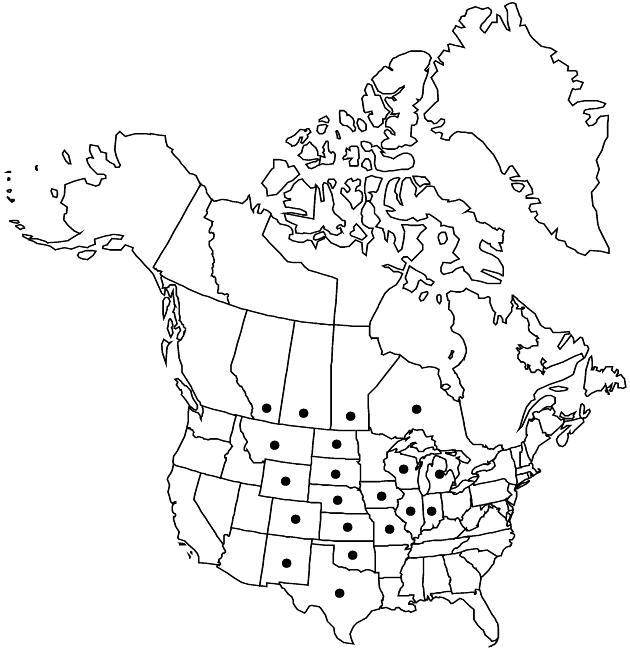Difference between revisions of "Solidago rigida subsp. humilis"
Canad. J. Bot. 66: 1805. 1988.
FNA>Volume Importer |
imported>Volume Importer |
||
| (2 intermediate revisions by 2 users not shown) | |||
| Line 6: | Line 6: | ||
|place=66: 1805. 1988 | |place=66: 1805. 1988 | ||
|year=1988 | |year=1988 | ||
| + | }} | ||
| + | |special_status={{Treatment/ID/Special_status | ||
| + | |code=E | ||
| + | |label=Endemic | ||
}} | }} | ||
|basionyms={{Treatment/ID/Basionym | |basionyms={{Treatment/ID/Basionym | ||
| Line 83: | Line 87: | ||
|publication title=Canad. J. Bot. | |publication title=Canad. J. Bot. | ||
|publication year=1988 | |publication year=1988 | ||
| − | |special status= | + | |special status=Endemic |
| − | |source xml=https:// | + | |source xml=https://bitbucket.org/aafc-mbb/fna-data-curation/src/2e0870ddd59836b60bcf96646a41e87ea5a5943a/coarse_grained_fna_xml/V19-20-21/V20_357.xml |
|tribe=Asteraceae tribe Astereae | |tribe=Asteraceae tribe Astereae | ||
|genus=Solidago | |genus=Solidago | ||
Latest revision as of 20:02, 5 November 2020
Stems 40–70(–90) cm, densely (less coarsely) hispid (30–70 hairs/mm2). Leaves: basal (often numerous), small, rarely exceeding 120 × 50 mm; faces densely (less coarsely) hispid (20–60 hairs/mm2); mid to distal lanceolate to ovate. Heads in tightly clumped, usually rounded arrays, 3–13(–23.5) × (3.5–)6–13(–18) cm. Peduncles densely hispido-strigose. Phyllaries: outer densely strigillose; inner often more nearly linear, 0.7–1.2 mm wide, conspicuously strigillose. Disc corolla lobes shallow, 0.9–1.2(–1.3) mm. Cypselae usually strigillose distally. 2n = 18.
Phenology: Flowering Aug–Oct.
Habitat: Dry to mesic, often sandy or eroded, soils, prairies and open meadows, open grassy clearings in woods
Elevation: 200–1900+ m
Distribution

Alta., Man., Ont., Sask., Colo., Ill., Ind., Iowa, Kans., Mich., Mo., Mont., Nebr., N.Mex., N.Dak., Okla., S.Dak., Tex., Wis., Wyo.
Discussion
Subspecies humilis is introduced in Illinois, Indiana, Michigan, and Ontario. The involucres are slightly smaller than those of typical variety.
Selected References
None.